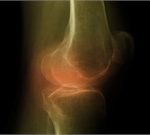
The United States on Thursday recorded its second highest daily total of new coronavirus cases since the pandemic began, with 75,000 new infections, while eight states broke single-day records of new cases. Also on Thursday, the antiviral medicine remdesivir became the first drug to gain U.S. Food and Drug Administration approval to fight COVID-19. Such drugs are urgently needed: Adding to bleak national numbers, 13 additional states have added more cases in the past week than in any other seven-day stretch, The New York Times reported. The Midwest and Rocky Mountains are struggling to contain major outbreaks, while new hot spots are emerging in other parts of the country. Kentucky announced more than 1,470 cases on Thursday, the biggest one-day jump ever in that state. And Colorado reported more than 1,300 cases, setting another single-day record, the Times reported. In Chicago, a nightly curfew will start on Friday, after officials reported an average of 645 new cases a day this past week, the newspaper said. The current record for new daily cases was recorded in mid-July, when over 77,000 infections were recorded in one day. Coronavirus cases have also been climbing on college campuses, where more than 214,000 infections have been diagnosed this year, a Times survey showed. More than 35,000 of those cases have been reported since early October. While some colleges moved all… read on >
















